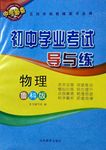题目内容
He wrote that the “human mind is capable of excitement without the application of unpleasant and violent stimulants(兴奋剂,刺激物)”. And it appears that simply reading these words by William Wordsworth proves his point.
Researchers at the University of Liverpool found the works of Shakespeare and Wordsworth and the like had a beneficial effect on the mind, making it active and excited by catching the reader’s attention and leading to moments of self-reflection.
Using scanners, they monitored the brain activity of volunteers as they read pieces of classical English literature both in their original form and in a modern translation. And, according to the Sunday Telegraph, the experiment showed the more challenging writing and poetry set off far more electrical activity in the brain than the simple readings.
The research also found poetry, in particular, increased activity in the right brain, an area concerned with “autobiographical memory”, which helped the reader to reflect on their own experiences in light of what they had read. The academics said this meant the classics were more useful than self-help books.
The brain responses of 30 volunteers were monitored in the first part of the research as they read Shakespeare in its original and modern form. In one example, volunteers read a line from King Lear, “A father and a gracious aged man: him have you madded”, before reading the simpler, “A father and a gracious aged man: him you have enraged”. Shakespeare's use of the adjective “mad” as a verb caused a higher level of brain activity than the straightforward translation.
The next part of the research is looking at the extent to which poetry can affect psychology and provide benefit, Volunteers’ brains were scanned while reading four lines by Wordsworth, and four “translate” lines were also provided. The result showed that the first version caused a greater degree of brain activity.
“Poetry is not just a matter of style. It is a matter of deep versions of experience that add the emotional and biographical to the cognitive(认知的),” said Professor Davis, leader of the researchers.
1.The words by William Wordsworth in Paragraph 1 are used to ________.
A. prove the poet’s point B. introduce the topic
C. serve as an example D. stress the importance of reading
2.What is the beneficial effect of reading classics on the mind?
A. It activates the reader’s mind B. It reflects the reader’s experience
C. It catches the reader’s attention D. It monitors the reader’s brain activity
3.What method is mainly used in the experiment?
A. Comparing responses. B. Analyzing data.
C. Observing activities. D. Testing ability.
4.According to Professor Davis, poetry can affect the mind mainly because of ________.
A. its style B. its meaning C. its depth D. its writer
 初中学业考试导与练系列答案
初中学业考试导与练系列答案| A. | paid | B. | cost | C. | bought | D. | spent |
| A. | /; a | B. | /;the | C. | the; a | D. | the; the |
| A. | had dreamed of | B. | have dreamed of | C. | dreamed of | D. | dream of |

